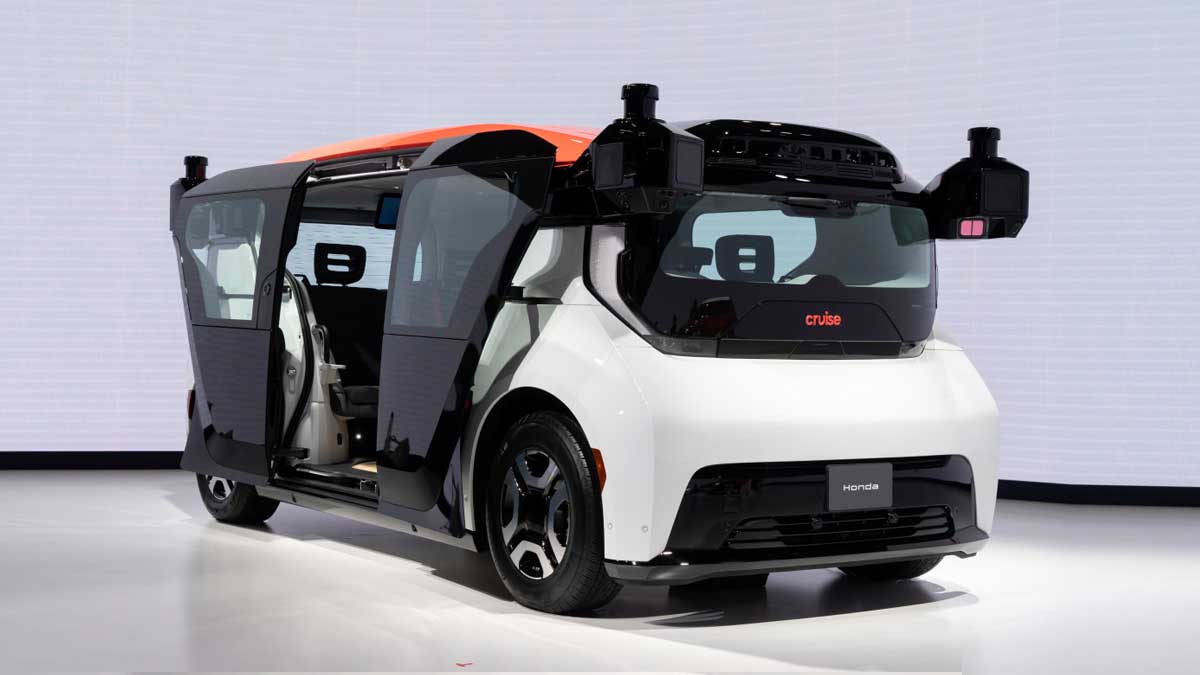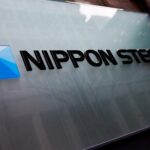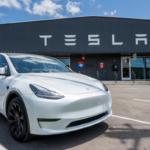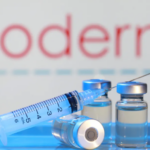- Home
- Billionaires
- Investing Newsletters
- 193CC 1000
- Article Layout 2
- Article Layout 3
- Article Layout 4
- Article Layout 5
- Article Layout 6
- Article Layout 7
- Article Layout 8
- Article Layout 9
- Article Layout 10
- Article Layout 11
- Article Layout 12
- Article Layout 13
- Article Layout 14
- Article Sidebar
- Post Format
- pages
- Archive Layouts
- Post Gallery
- Post Video Background
- Post Review
- Sponsored Post
- Leadership
- Business
- Money
- Small Business
- Innovation
- Shop
Recent Posts
GM Shares Fall 6% After Cruise Halts Self-Driving Car Production

Shares of General Motors (GM) dropped by over 6% on Tuesday, marking the company’s most significant one-day decline in nearly a year. This downturn follows the indefinite delay in the production of an autonomous vehicle by its self-driving unit, Cruise. The vehicle, known as the Origin, which lacks a steering wheel or pedals, has faced numerous delays and scrutiny, particularly after a Cruise car struck a pedestrian.
By 11 a.m., GM’s stock had fallen to approximately $46.50, marking its steepest decline since a 5.7% drop on August 8 of the previous year. That earlier drop was due to production delays in GM’s electric vehicle lineup, caused by battery assembly issues.
In its second-quarter report, GM revealed that Cruise had indefinitely postponed the production of the Origin. GM CEO Mary Barra explained that this move aims to reduce Cruise’s costs and address “regulatory uncertainty” surrounding the vehicle, which lacks traditional driving controls such as a steering wheel, pedals, and mirrors.
Cruise CEO Kyle Vogt halted the production of the Origin in October, coinciding with a nationwide suspension of the company’s driverless operations. This decision came after an incident where a pedestrian was inadvertently dragged by one of Cruise’s robotaxis. In response, Cruise has shifted its focus to developing the next-generation Chevrolet Bolt, a previously discontinued electric car that has been integral to Cruise’s vehicle development.
The halt in Cruise production at a Detroit plant resulted in approximately $583 million in costs for GM.
Despite the setbacks, GM has raised its earnings estimates for the year. The company now expects earnings to be between $13 billion and $15 billion, up from the previous range of $12.5 billion to $14.5 billion. GM reported second-quarter earnings of $3.06 per share and revenue close to $48 billion, surpassing analyst expectations of $2.75 per share and around $45.5 billion, according to FactSet.
The development of the Origin has been plagued by delays for years. In 2018, GM petitioned the National Highway Traffic Safety Administration (NHTSA) to allow the creation of a Chevrolet Bolt without steering wheels or brake pedals. The petition was withdrawn a year later after the NHTSA took no action. Cruise filed a petition in 2022 to approve the Origin, but the agency has yet to issue a decision. While waiting for regulatory approval, Cruise has been allowed to test the vehicles.
Cruise suspended operations last year following multiple safety concerns, including a reported incident where a Cruise robotaxi dragged a female pedestrian after being pushed in front of the vehicle by a human-driven car. This incident led to investigations by the NHTSA, the Justice Department, and the Securities and Exchange Commission to assess whether Cruise had implemented sufficient pedestrian safety measures. In response, Cruise initiated an internal review and hired an external consulting firm to evaluate its technology. Testing of Cruise’s robotaxi fleet with human-driven vehicles resumed in Phoenix earlier this year and has since expanded to Dallas and Houston.
The indefinite delay of Cruise’s Origin vehicle production has significantly impacted GM’s stock and raised questions about the future of autonomous vehicle technology. The company’s decision to halt production and redirect focus to other projects highlights the challenges and uncertainties in the rapidly evolving autonomous vehicle industry. Despite these setbacks, GM’s strong financial performance and increased earnings projections indicate resilience and adaptability in navigating these obstacles.
Recent Posts
Categories
- 193 Countries Consortium Partner1
- 193cc Digital Assets2
- 5G1
- Aerospace & Defense48
- AI37
- Arts3
- Banking & Insurance11
- Big Data3
- Billionaires1,121
- Boats & Planes1
- Business332
- Careers13
- Cars & Bikes79
- CEO Network1
- CFO Network17
- CHRO Network1
- CIO Network1
- Cloud10
- CMO Network18
- Commercial Real Estate7
- Consultant1
- Consumer Tech194
- CxO1
- Cybersecurity73
- Dining1
- Diversity, Equity & Inclusion4
- Education7
- Energy8
- Enterprise Tech29
- Events11
- Fintech1
- Food & Drink2
- Franchises1
- Freelance1
- Future Of Work2
- Games149
- GIG1
- Healthcare79
- Hollywood & Entertainment203
- Houses1
- India’s 1000 Richest1
- Innovation46
- Investing2
- Investing Newsletters4
- Leadership65
- Lifestyle11
- Manufacturing1
- Markets20
- Media296
- Mobile phone1
- Money13
- Personal Finance2
- Policy569
- Real Estate1
- Research6
- Retail1
- Retirement1
- Small Business1
- SportsMoney42
- Style & Beauty1
- Success Income1
- Taxes2
- Travel10
- Uncategorized12
- Vices1
- Watches & Jewelry2
- world's billionaires1,090
- Worlds Richest Self-Made Women2
Related Articles
HBO and Cablevision Founder Charles Dolan Dies at 98
Charles Dolan, the visionary founder of HBO and Cablevision, passed away at...
By 193cc Agency CouncilDecember 30, 2024Bitcoin Reaches $100K, But Altcoins Outperform in 2024
Bitcoin’s performance in 2024 was nothing short of historic, as it crossed...
By 193cc Agency CouncilDecember 28, 2024Apple Unveils Limited-Edition Year of the Snake AirTag in Japan
In an announcement that will likely leave Apple enthusiasts excited but also...
By 193cc Agency CouncilDecember 27, 2024Mega Millions Jackpot Hits $1.15B; Winner Faces Major Taxes
The Mega Millions jackpot has soared to an estimated $1.15 billion, following...
By 193cc Agency CouncilDecember 26, 2024















Leave a comment